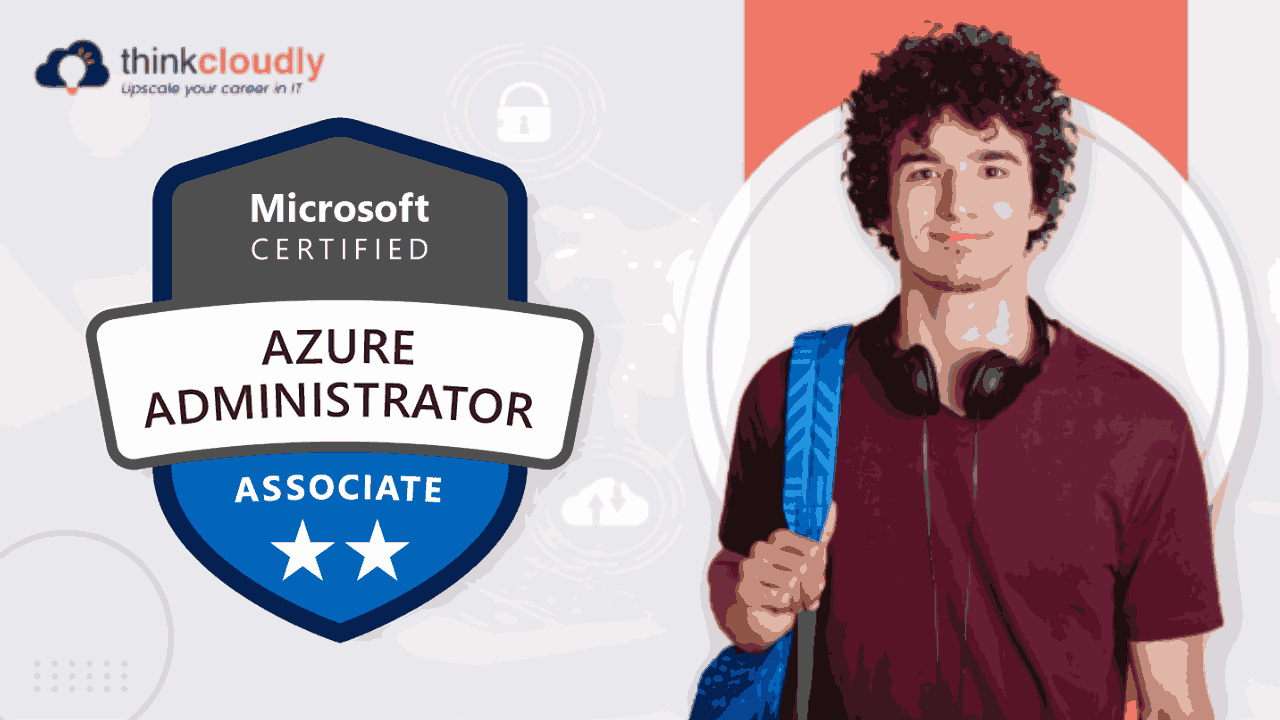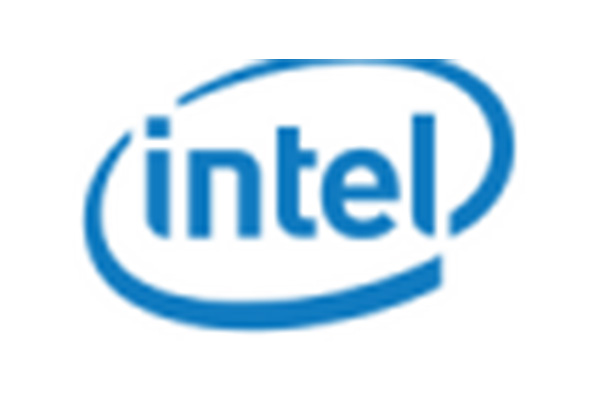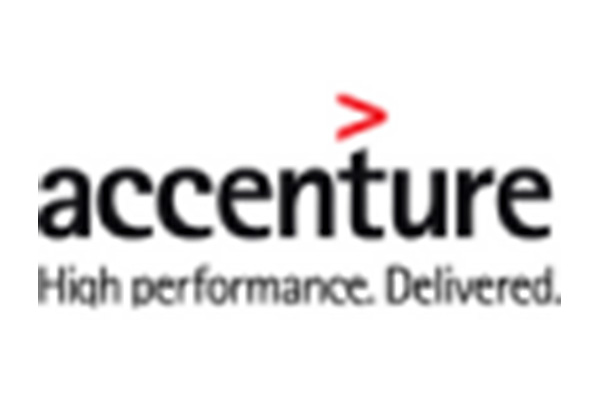Az-104: Azure Administrator certification training
Welcome to Thinkcloudly’s Azure Administrator online training course!
This specially designed job-oriented course for Azure Administrator certification training will help you prepare for the Microsoft Azure Administrator AZ-104 certification exam and secure positions in cloud computing jobs. Learn Microsoft Azure services such as Storage, Virtual Machines, Cloud Services, Azure Active Directory, Virtual Networking, and Identities through comprehensive hands-on experience.
- 10k+ PROFESSIONALS TRAINED | 30+ HRS OF ONLINE TRAINING
- 25+ CLOUD COMPUTING SKILLS | 20+HANDS-ON LAB PRACTICE


Azure Administrator Training Course Highlights
Thinkcloudly provides the most comprehensive and one of the best Azure training. Our Azure training provides you hands-on experience in Azure concepts and workflow using labs and live sessions.
Upon successfully completing this Azure Administrator training Az-104, you will be proficient in Azure cloud services. You will also be ready for Microsoft Azure Administrator certification Exam (Az-104) exam.
- Instructor Led Trainings
- Life-time access to Course Material
- Gain Industry Experience
- Certification of completion
- Learn Anytime Anywhere
- Live Sessions with Industry Experts
- 24*7 Help & Support
- Hands On Experience
Azure Administrator Training Course Learnings
Learn how to design identity, governance, and monitoring solutions.
Manage subscriptions, accounts, Azure policies, and Role-Based Access Control.
Manage network traffic using Azure load balancer, and Azure Application Gateway.
Manage and secure Azure storage accounts, blob storage, and Azure files with File Sync.
Administer Azure using the ARM, Azure portal, Azure PowerShell, CLI, and ARM templates.
Azure Administrator Training Course Curriculum
Module 0: Introduction to Computers
Topics:
- What is a computer?
- Hardware and software
- Basic operations
Inside a computer case
- Motherboard
- Processor
- Memory
- Disks
- Input Devices
- Output Devices
Module 1: Introduction to cloud computing
Topics:
- What is cloud computing?
- Types of cloud
- Comparison between on-prem and cloud computing
- AWS Terminology
- Advantages and disadvantage
Module 2: Getting Started with Azure
Topics:
- Introduction to Azure
- Why, What, and Benefits of Azure?
- Azure Hosting Models
- Azure Services
- Subscribing to Microsoft Azure
- Azure Portals
- Azure Key Concepts
- Azure Resource Group
- Creating Azure free trial account.
- Tour to Azure portal
Module 3: Configure and Manage Azure Virtual Networks
- Overview of Azure Networking
- Virtual Network Benefits
- Understanding Network Resources
- Implement and manage virtual networking.
- Create a VNet using Azure Portal
- Create a Subnet
- Configure private and public IP addresses.
- Create a Network Interface Card with public, and private IP addresses.
- Create a Virtual Machine
- Setup Network Security Group
- Create security rules.
- Associate NSG to a subnet or network interface
- Identify required ports.
- Evaluate effective security rules.
- Azure Firewall
- Understanding Azure DNS
- Configure Azure DNS
- Public and Private DNS Zones
- Create connectivity between virtual networks.
- Create and configure VNET peering.
- Monitoring and Troubleshooting Network Connectivity
- Monitor and Manage Networking
- Verify, Manage and Monitor on-premises connectivity
- Use network resource monitoring and Network Watcher
- Manage external networking and virtual network connectivity.
Module 4: Load Balancing Solutions
- Understanding and Creating Availability Set
- Understanding Availability Zones
- Load Balancing
- Configure external and internal Azure Load balancer.
- Load Balancing Rules
- Implement front-end IP configuration.
- Azure Traffic Manager
- Azure Front Door
Module 5: Azure Storage Service
- About Storage Service and Account
- Creating a Storage Account
- Working with Blob Storage
- Types of Blobs (Block, Append, Page)
- Container and Metadata
- Soft Copy
- Azure Storage Explorer
- Transfer Data using AZ Copy
- Programming Blob Storage
- Async Blob Copy
- Import and Export Service
- Implement and Configure CDN
- Configure Custom Domain
- Scale Blob Storage
- Storage Service Encryption
- Manage Access / Securing Storage
- Create and Manage Shared Access Signature
- Account SAS vs Service SAS
- Using Stored Access Policies
- Regenerating Keys
- Encrypt Keys using Azure Key Vault integration
- Working with Table Storage
- Understanding NoSQL Database
- Creating Table and Entities using Storage Explorer
- Entities and Properties
- Table storage vs COSMOS DB Table API
- Azure Queues Storage
- Understanding Async Communication using Queues
- Comparing Azure Queues and Service Bus Queues
- Azure SMB File Storage
- Common usage of File Storage
- Shares, Directory, and File
- Managing Using Azure Portal
Module 6: Managing Azure with PowerShell and Azure CLI.
- Installing the required modules
- Login to Azure Portal
- Managing Resource Group
- Managing App Service Plans and App Service Web Apps
- Create and Configure a Storage Account
- Managing Storage Accounts using PowerShell
- Azure CLI Introduction and Setup
- Creating Resources
- Listing and Formatting output
- Connect a Web App to SQL Database
- Deleting Resources
- Interactive Mode
Module 7: Managing ARM Templates
- Understanding Azure Resource Manager (ARM)
- Exporting and Importing ARM
- ARM Resource Providers
- Deploy ARM Templates
- Using PowerShell
- Azure CLI
- Azure Portal
Module 8: Azure Virtual Machine
- Introduction
- About Virtual Machine Workloads
- Create a Windows Virtual Machine using Portal / PowerShell / ARM Templates
- Deploy popular application frameworks by using Azure Resource Manager templates.
- Virtual Machine Disk
- Convert Unmanaged Disk to Managed Disk
- Generalizing VM and Capture VM Images
- VM Disk Types
- VM Sizes in Azure
- Configuring VM Disk Encryption
- Virtual Machine Scale Sets
- Perform configuration management
Module 9: Implement and Manage App Services – Web App
- Introduction
- App Service – Application Types
- Deploy Web Apps
- App Service plans.
- o Create App Service Plan
- o Migrate Web Apps between App Service plans.
- o Create a Web App within an App Service plan.
- Configuring Web Apps
- o Application Settings Configuration
- o Database Connection Strings
- o Configuring Handlers and Virtual Directories
- Configure a custom domain name Enable SSL/TLS for your custom domains.
- Understanding Deployment Slots
- Horizontal and Vertical Scaling of a Web App
- VNet Integration
Module 10: Manage Azure Subscriptions
- Understanding Azure Subscriptions
- Configuring Role Based Access Control
- RBAC using Portal.
- RBAC using PowerShell and CLI
- Custom Roles for RBAC
- Managing Subscription Policies
- Locking Resources
- Checking Resources Limits
- Resource Tags
Module 11: Managing and Securing Identities using Microsoft Entra ID
- Microsoft Entra ID Introduction
- Microsoft Entra ID Editions
- Adding a custom domain name to Microsoft Entra ID
- Managing Microsoft Entra ID Users, Groups, and Devices
- Adding Partner Users from other organizations
- Configure Windows 10/11 with Microsoft Entra ID domain join.
- Self-Service Password Reset
- Administrative Units
- Microsoft Entra ID Connect
- Microsoft Entra ID User Sign-In Options
- Password Synchronization
- Passthrough Authentication
- Federated SSO
Module 12: Azure Monitoring and Log Analytics Workspace
- Azure Monitor Overview
- Monitoring Metrics
- Monitoring Logs
- Azure Activity Logs
- Azure Diagnostics Logs
- Log Analytic Workspace
- Collect data from an Azure VM / Windows computer.
- Application Insight
Training And Package Fee
Training Fee
Designed to get you trained with the core knowledge.
$599.00
- Online Live Training
- Live Projects
- Resume Building
- LinkedIn Grooming
- Profile Marketing
- Mock Interview Sessions
- Certificate Assistance
Job Seeker's Program Fee
Designed to make you job ready with knowledge, experience, and grooming.
$1400.00 $1150.00
£1299.00 £849.50
- Online Live Training
- Live Projects
- Resume Building
- LinkedIn Grooming
- Profile Marketing
- Mock Interview Sessions
- Certificate Assistance
Azure Administrator Training Course Outcomes
Be eligible for IT jobs in MNC's.
Earn Certificate of completion.
Deepen your understanding of cloud computing.
Practice with hands-on labs to polish your cloud computing skills.
Improve your technical abilities by learning with the finest trainers.
What roles you can play?
Infrastructure Engineer
As an Infrastructure Engineer, you orchestrate IT infrastructure, focusing on Azure for robust setups.
Network Administrator
Azure Network Admin expertly configures networks, ensuring secure connectivity, pivotal for infrastructure reliability.
Cloud Administrator
As a Cloud Administrator, you ensure smooth operations, optimize performance, implement best practices.
Azure Administrator
As an Azure Administrator, you manage Azure environments, provisioning resources, and ensuring performance and security.
DevOps Engineer
Azure Administrators with DevOps expertise streamline application development, implementing CI/CD pipelines.
IT Consultant
Azure Administrators consult organizations on cloud migration, Azure optimization, and specific solutions using Azure services.
Know before you Start
Why enroll for Microsoft Azure Administrator Live Training?
Unlock the power of live training to gain hands-on experience and in-depth knowledge. Our carefully crafted sessions provide a dynamic learning environment where you can interact with instructors, ask questions in real-time, and collaborate with fellow learners. Dive into practical scenarios, explore the intricacies of Azure administration, and receive personalized guidance to excel in your certification journey. Elevate your skills with a live training experience that goes beyond traditional methods, preparing you not just for exams but for real-world challenges in cloud computing.
Why Microsoft Azure Administrator Live Training from Thinkcloudly?
If you take up the AZ 104 exam, you should have a firm knowledge about IT operations, including virtualization, identity, security, business continuity, disaster recovery, data platforms, and governance. To succeed in this field, you need to evaluate how the decisions you make affect the solutions to each issue. They also need to be experienced in Azure management, Azure development, and DevOps methods.
Following are those who can go for this best online Azure training:
Anybody who want to get into IT from NON-IT and learn cloud computing Those who are already familiar with Azure Cloud as developers or IT administrators Microsoft Azure Administrator certification – Expert badge candidates Cloud advocates Professionals with a solid understanding of how IT networks DevOps professionals IT professionals who wish to work as Azure Administrator.
Following are those who can go for this best online Azure training:
Who Can apply for the course?
What job roles does an azure administrator expert play?
What is the Course objective?
Skills You Will Gain
- Azure VMSS
- Blob
- Azure CLI
- Networking
- PowerShell
- Azure VM
- ARM
- Storage
- Security
- No SQL
- Azure Storage
- Load Balancers
Certification Overview
How do I become a certified Azure Administrator?
During the last quarter, Azure’s revenue expanded by 76%. Azure professionals are increasingly in demand as businesses move their IT infrastructure to Microsoft’s cloud platform.
As there are relatively few people who have extensive Azure experience, many employers rely on certifications as evidence that candidates are competent.
To obtain the Microsoft Certified: Azure Administrator certification. Certifies you as an Azure Administrator Associate.
In order to be eligible for this certification, one needs advanced experience and knowledge of IT operations such as networking, virtualization, security, business continuity, and disaster recovery, as well as an understanding of the impacts decisions made in each of those fields will have on the final result.
What they need to succeed are experience in Azure administration, Azure development, and DevOps procedures.
What does a Microsoft Certified Azure Administrator do?
The primary role involves managing and maintaining Azure environments, including provisioning and scaling resources, implementing and managing storage solutions, and ensuring the overall performance and security of Azure services.
What skills should I learn to get azure administrator certification?
How difficult is Azure administrator certification?
As a certification exam, the exam is challenging with 150 questions and requires a strong understanding of Azure. The Azure administrator certification is not for the faint of heart. A lot of dedication and hard work is required.
How much do Azure Administrator make?
The salary of an Azure Administrator can vary based on factors such as experience, location, industry, and the size of the employing organization. Salaries are subject to change, and it’s advisable to check more recent sources or salary surveys for the latest information.
As a general guideline, in the United States, an Azure Administrator’s annual salary can range from around $60,000 to $120,000 or more, depending on the factors mentioned above. Experienced professionals with additional certifications and skills may command higher salaries.
Our Students Work at












Azure Administrator Training Course Reviews
FAQs
What is the payment procedure?
We accept all major credit and debit cards from leading banks. For any assistance, please contact Thinkcloudly Customer Support.
Which course or Plan is best for me?
We offer a variety of ways to learn about the cloud, from quick hands-on labs to technical deep dives. You can ask our experts to help you from their industry experience if you are uncertain which course or plan to choose.
Are there any Microsoft Azure Administrator jobs available in the market?
The worldwide public cloud service market is expected to grow to $864B by 2025, a compound annual growth rate of 12.6% – Forbes.com, therefore, there will be and are many jobs for Azure Administrator Expert.
What is the average azure cloud administrator salary?
According to indeed.com, the average azure cloud administrator salary is $1,00,000 per year.
Would a Demo Session be available before I enroll?
Certainly, you can set up a free demo session, although if you’ve already viewed any sample recordings, you won’t need to look further. The enrollment process signifies a mutual commitment between you and us where you commit to be a good learner and we pledge to provide you with the best possible learning environment. A key part of your learning takes place in our sessions, which are supported by experienced instructors, dedicated Personal Learning Managers, and interactions with your peers. Get the full learning experience, and not just a demo.
When will I be able to access the Learning Content?
You will receive access to the LMS immediately after enrolling and will have it for the rest of your life. You will have access to all previous class recordings, PPTs, PDFs, and assignments. In addition, you will have instant access to our 24×7 support team. You can start learning as soon as possible.
Related Courses
Price:$599.00











